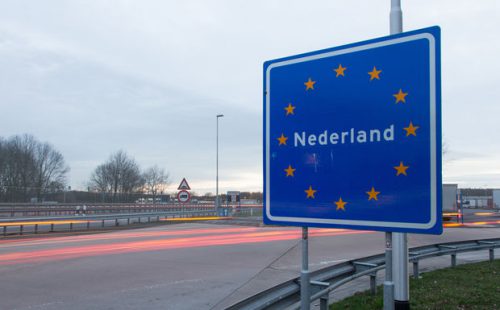Companies that are temporarily active as service providers in the Netherlands will have to register their employees as of March 1st, through a digital system that has been launched by the Dutch Ministry of Social Affairs and Labour. The duty will also be for self-employed workers.
In this way, the Netherlands is taking advantage of the law on posted workers in the European Union that came into force on 18th June 2016, whereby workers have the right to follow the conditions of employment set out there, in terms of minimum wage, rest periods, safe working conditions, etc.
In what cases is there an obligation to notify?
The process must be carried out in cases where goods are transported between two points in the Netherlands (cabotage), or if they are loaded or unloaded in the Netherlands as part of an international transport, and notification of such work is mandatory before it is carried out.
However, in the case of road haulage, an annual notification can be made for companies working abroad, which are self-employed in the road haulage sector or where services are provided on behalf of a customer or company in the Netherlands.
Notifications can be made from 10 February onwards on the Dutch online portal but must be made by 1 March. After that date, if they are not made, or are made late or in error, the authorities may impose a fine of up to EUR 12,000 on both the service providers and their clients.
The data to be verified are: information on the company, data on the client, the industry in which it operates, the address of the workplace, the estimated duration of the activity, the identity of the person responsible for paying the salaries, the identity of the potential employees and certification of the payment of contributions. In addition, however, in the case of the employer (and not the self-employed person), he must have a contact person in the Netherlands who will be the one to establish contact with the Dutch authorities in the event of an inspection.
It should be stressed that only natural persons can be contact persons and must be authorised to send and receive documents on the notification. The data entered will be received by the Social Affairs and Employment Inspectorate (SZW), the Sociale Verzekeringsbank (SVB) and the Dutch Tax and Customs Administration.
Are there any exceptions?
In the case of transport there are some distinctions depending on their classification and it is not obligatory to make the notification those that are included within the following categories:
- Passenger rail transport (excluding metro and tram)
- Rail freight transport
- Passenger transport by road
- Transport of goods by road provided that the work consists exclusively of transporting goods through the Netherlands, but without loading or unloading there.
- Transport of water
- Air transport
- Postal and courier activities
What does it mean for transportation?
CETM considers that the entry into force of this procedure implies another administrative burden for companies in the freight transport sector and, most probably, the measure will disrupt their operations, especially at the beginning, when companies will have to adapt to the system and the first inconveniences will arise. In addition, it will be essential for them to designate a contact person in the Netherlands.
On the other hand, this fact once again shows that, despite the efforts being made to harmonise the freight transport sector with the adoption of the Mobility Package, the scenario remains difficult for companies when some countries, as will be the case with the Netherlands, choose to follow their particular system, which does not correspond to the search for balance that is intended to be carried out through this package of measures.
These processes are already carried out in countries such as France, where the Macron Act currently requires companies to have a Legal Representative and to fill out a form through SIPSI for each employee who carries out cabotage or transport operations to or from France.

